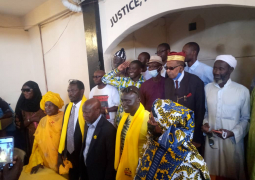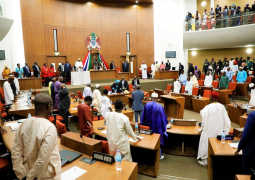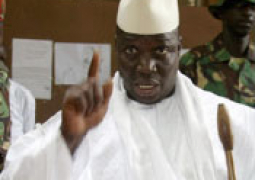
“If it is not victim-centered and gender-sensitive, it is not restorative, and it is not justice!” they say.
“Despite the fact that many transitional justice processes claim to be ‘victim-centred,’ in practice they are rarely driven by the needs of those most affected. At best those who lead them organize consultations with victims’ organizations, most of which are not in-depth and expansive enough for the purpose. Rarely are victims and survivors of sexual violence at the heart of the process to design the mechanisms (truth commissions, justice options, institutional reforms…), despite the fact that they – and not the people who claim to represent them- are experts in their own right.
Transitional justice seeks to address issues arising from violations committed during conflict or political violence. It does this however in largely prescriptive and institutional ways, often elite-led and subject to existing power relations; as a result, many transitional processes fail to consider the needs and demands of victims of violence and their families despite the fact that many continue to bear the brunt of these violations.
More often than not, women are also not appropriately represented in transitional justice discussions and mechanisms. Including women does not mean appointing them as deputies to men, including women does not mean making them the heads of gender units, including women does not mean giving them the floor only when it is time to discuss sexual and gender-based violence. This discourse reduces women to their injury in a perpetrator centred way, rather than discussing the gendered power relations that lead to violations. Meaningful inclusion of women means having fifty percent of women in all discussions about which options to choose and mechanisms to put in place and then having equal representation of women and men in all of these created institutions.
Transitional justice necessarily aims to move a society towards a better future and reshape the institutions of justice that failed to prevent atrocities.
We, signatories of this manifesto, therefore call on all transitional justice actors in The Gambia, be it governmental representatives, international actors and donors, to re-evaluate current transitional justice projects to ensure that they are truly victim-centered and gender sensitive in order to live-up to the Never Again promise that was made after the fall of Jammeh. Although we acknowledge that this is not an easy task ahead as it means rethinking strategies and challenging the status quo, we invite you to take part in this crucial dialogue as the changes we are fighting for cannot occur without the voices of those most affected being heard.
Here is a list of recommendations that we believe will benefit the current and future generations of transitional justice actors:
1-Project design and funding
We call on donors to ask grantees to commit to including fifty percent of women, as well as victims, in the lead of transitional justice projects - even those already funded - and to hold them accountable when they do not. It is well known that diversity and inclusion at leadership levels produce better solutions to complex problems.
2-Inclusion of women and victims
We urge Gambian authorities to appoint more women in decision-making positions related to transitional justice and call upon national and international stakeholders to actively include women and seek to be more inclusive towards victims. Because in The Gambia almost all high-level positions are held by men, they are the ones who get consulted, hence perpetuating the exclusion of women from decision-making. Too often has the excuse of “the difficulty in finding qualified and available women” been used to justify the lack of diversity. We can assure you that the women are there and ready to change the narrative!
3-Reviews and information sharing
We propose that reviews, consultations and strategies put forward include full transparency on the decision-making process. This will allow for an understanding of the different voices and ask donors to not shy away from asking for this information. This will contribute to a culture of inclusion and ensure that the interests of those most affected are considered and upheld.
These recommendations are just fragments of the larger discourses surrounding meaningful transitional justice. Many of the suggestions throughout this statement have already previously been highlighted by activists but there is no better time than now to make this happen, whilst different transitional justice processes are ongoing in The Gambia.”





